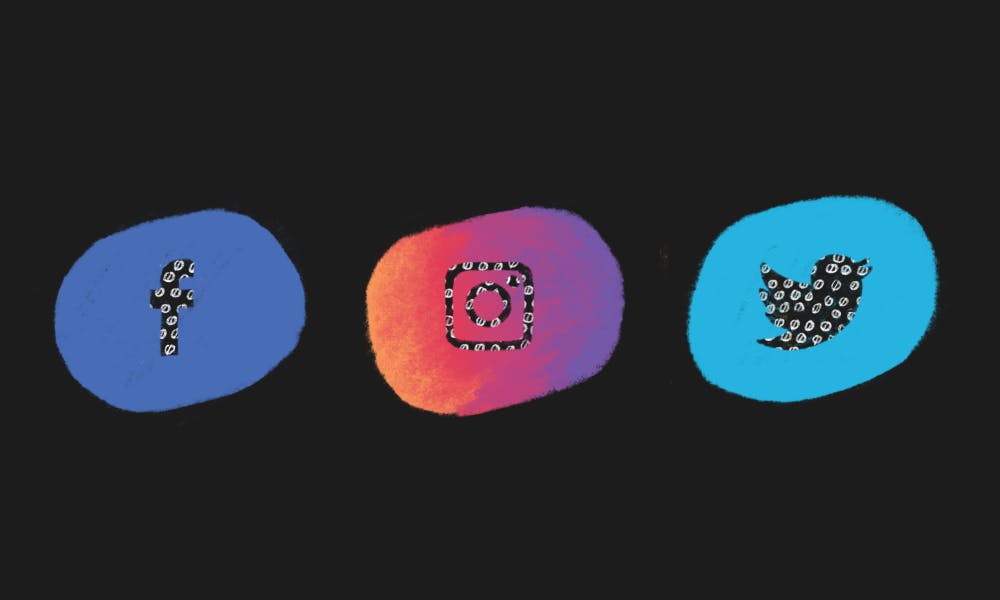In a world riddled with social media handles and unearthed scandals, chances are your favorite celebrity has been canceled. "Canceling" refers to calling out public figures for past behaviors that may be problematic or insensitive. What began as an act of correction has grown into an entire movement of “dropping” public figures and using their past actions as justification to consider them and their career entirely unsupportable. Often times, such actions resurface in the form of antiquated tweets— fans and haters sift through celebrities' tweets from years prior until something controversial appears. An example of this search for the problematic can be seen in Kevin Hart’s Twitter archive, when in 2011, he tweeted a stream of homophobic thoughts and slurs. After fellow social media users exposed this part of his past, he immediately became the center of a Twitter storm as the public called to cancel him—causing him to step down as host for the 2019 Oscars.
Canceling doesn’t always stem just from problematic tweets, however. Accompanying the rise of the Me Too movement, many public figures were revealed to have a history of sexual harassment. Accordingly, they were canceled. Meanwhile here at Penn, reports of such misconduct arose against former trustee Steve Wynn, and the University acted accordingly by removing his name on the sign near Houston Hall. Musician R. Kelly saw his music removed from all of Spotify’s service–created playlists in the face of sexual violence accusations.
However, the business of canceling can become more convoluted than we realize. This past month, beauty influencer Tati Westbrook uploaded a now–deleted lengthy Youtube video calling out the immoral actions of her famous friend, fellow influencer James Charles. What began with Charles publicly promoting a competitor of Westbrook’s vitamin company, Halo Beauty, snowballed into accusations of his predatory actions towards straight men -- and his enlarged ego. Those invested in the storyline watched as the live subscriber count of Charles plummeted while Westbrook’s climbed—until Charles responded with his own forty–five--minute long video embellished with explanations and text message screenshots.
This back–and–forth that erupted in the beauty industry spawned a clash over who was correct, who provided the most receipts, and who crafted the most convincing apologies. If fact, it was a battle of who to cancel. Yet, instead of focusing on the issues both parties addressed—the predatory stigma against gay men, the falsified images portrayed by influencers—the drama boiled over into death threats against Charles, hundreds of pre–teens attacking Westbrook, and an abundance of (albeit humorous) memes.
Although the cancel culture aims to morally correct society and the figures that pose at its forefront, it contains several flaws — the first being that it places all controversy under the same microscope. By dedicating the same amount of energy towards canceling YouTuber Shane Dawson over a fictional–yet–disturbing story told on his podcast that we put into canceling YouTuber Logan Paul over a video of him discovering a suicide victim in a forest, we do not draw a distinction of which is worse. We automatically deem all problematic content abysmal and therefore become desensitized to the varied issues at hand. Cancel culture doesn't seem to distinguish between what is really bad, and what is truly unforgivable.
Following this, cancel culture actually eliminates the possibility of forgiveness. If we paint perpetrators of sexual assault in the same light as someone who demonstrated some past ignorant behaviors, we disable the latter from learning and growing. We view role models as perfect people until they are canceled—until they become symbols of rejection. This symbolization clouds over the reality that public figures are still, in fact, members of humanity, and despite their actions, some of them may warrant a second chance.
After all, despite how many times we choose to cancel someone, they will still have fans supporting them. Their products will still be bought, their art will still be appreciated. So perhaps it does more good to allow them a chance to step back and learn why and how they hurt people, rather than cutting them off altogether. Logically, this gives them the ability to teach their fans why they were wrong — which is more important than a half-hearted boycott.
Following his scandal, Kevin Hart made several public statements saying his goal was to unite people and is actively working towards undoing the hurt his insensitive past caused. Support flooded his way as other celebrities—such as Ellen DeGeneres—called for Kevin to be given an opportunity to display his growth. An apology, when rooted in sincerity and change, does more good than a Twitter cancel party.
Make no mistake: that doesn’t mean we should start ignoring controversial actions done by our favorite celebrities. Not every act is worthy of redemption, and not every person is capable of growing out of who they once were. But maybe, if instead of automatically canceling everyone, we put in the effort to make the best out of the worst, we could do more good than harm. We cannot patch up the pain caused, but we can prevent it from happening again. And at the end of the day, that holds more value than the 280 characters in a tweet.







